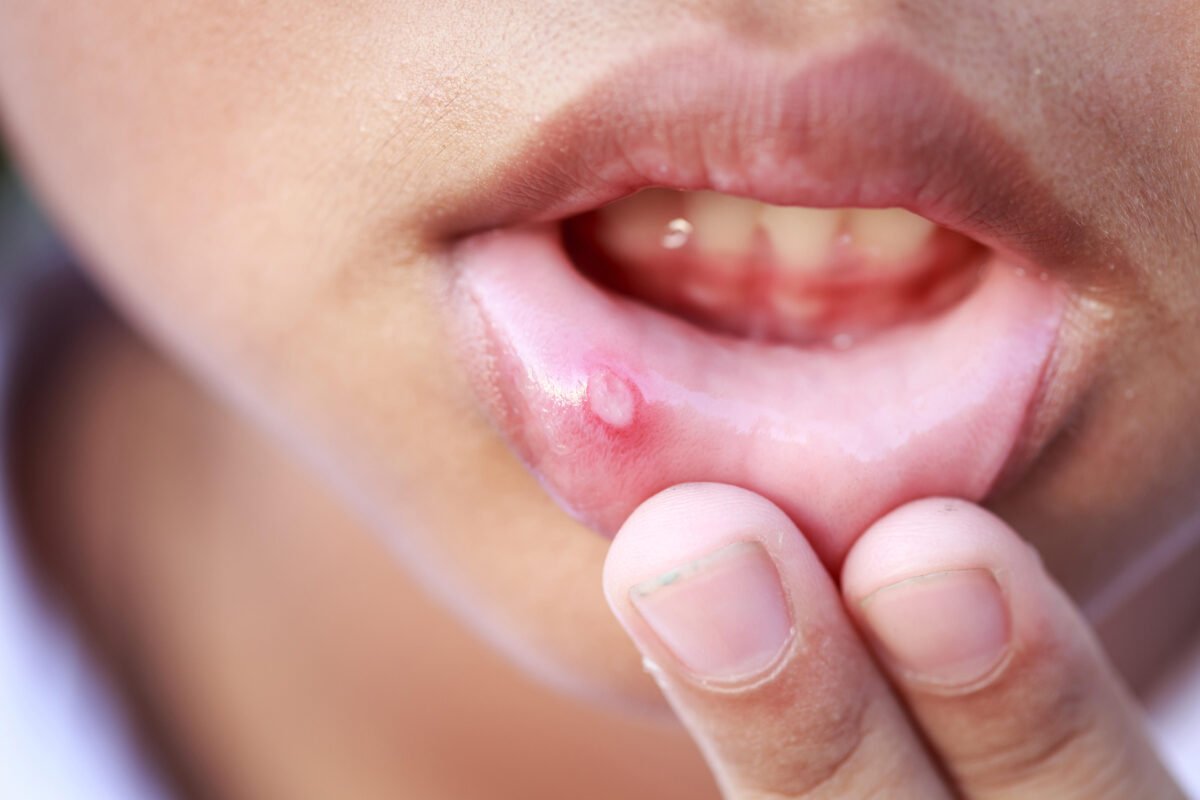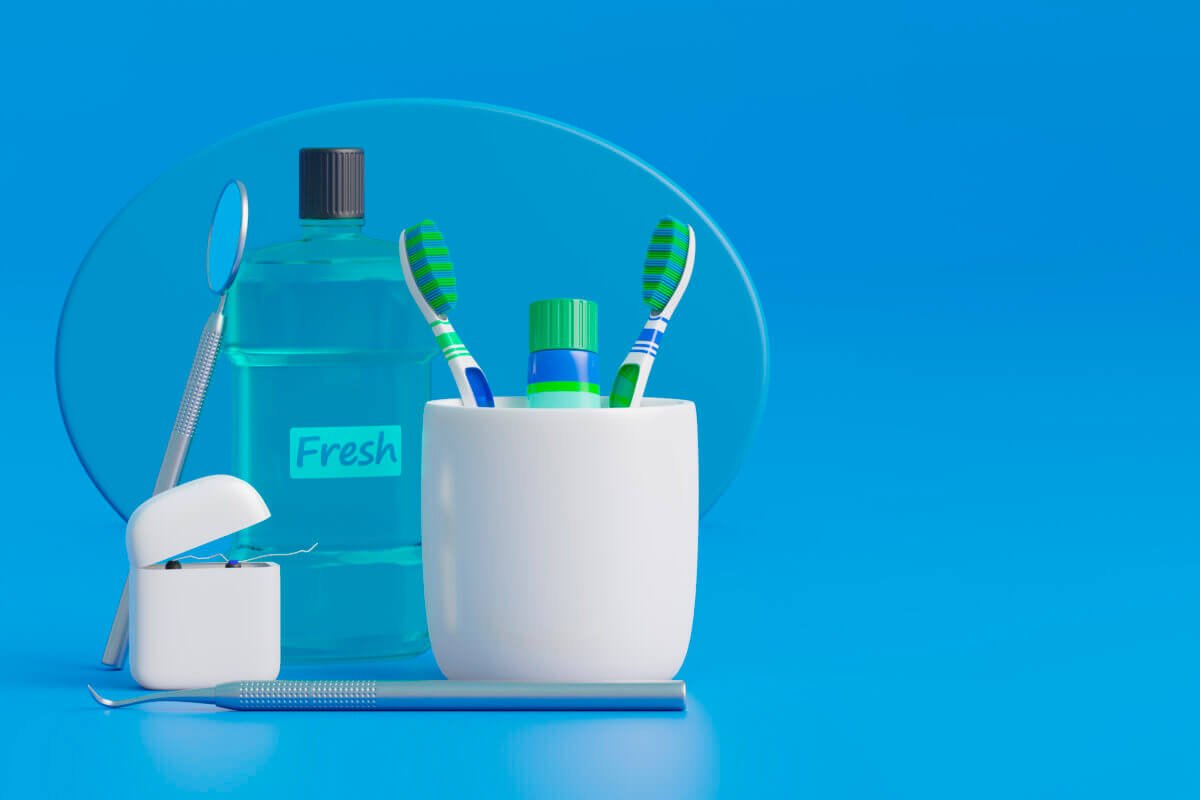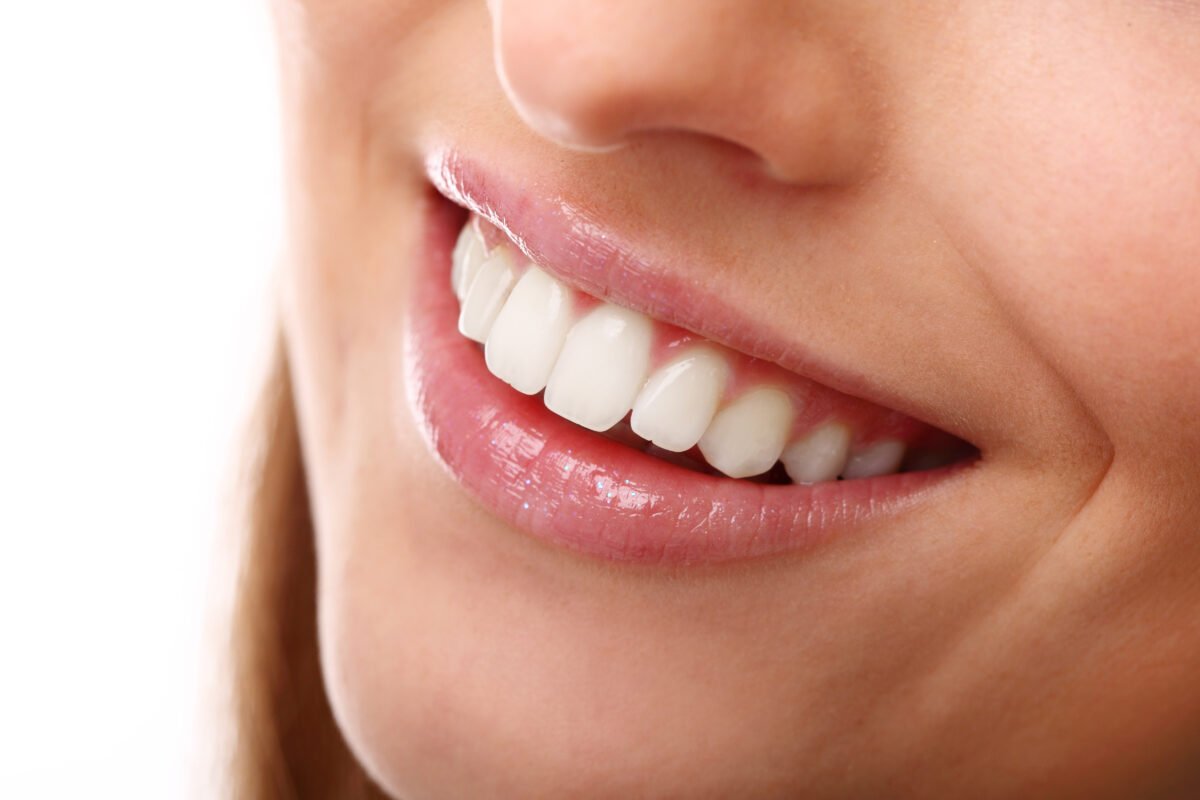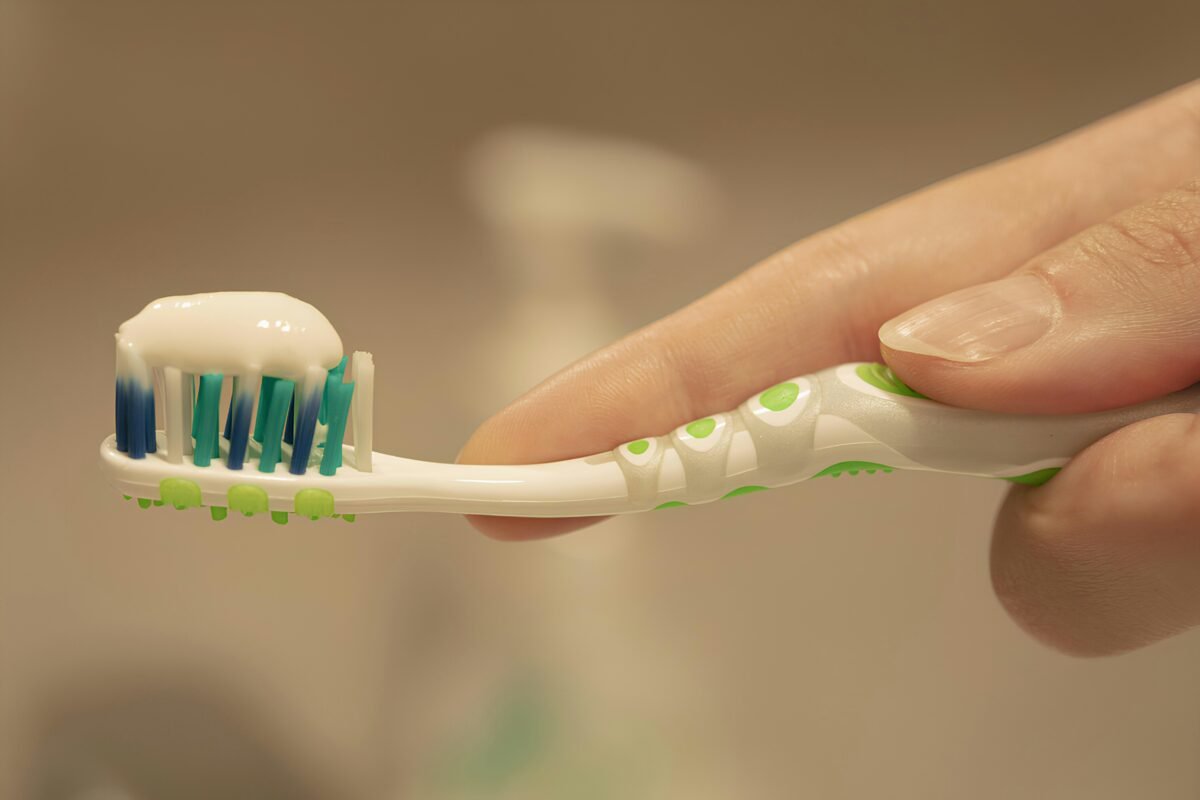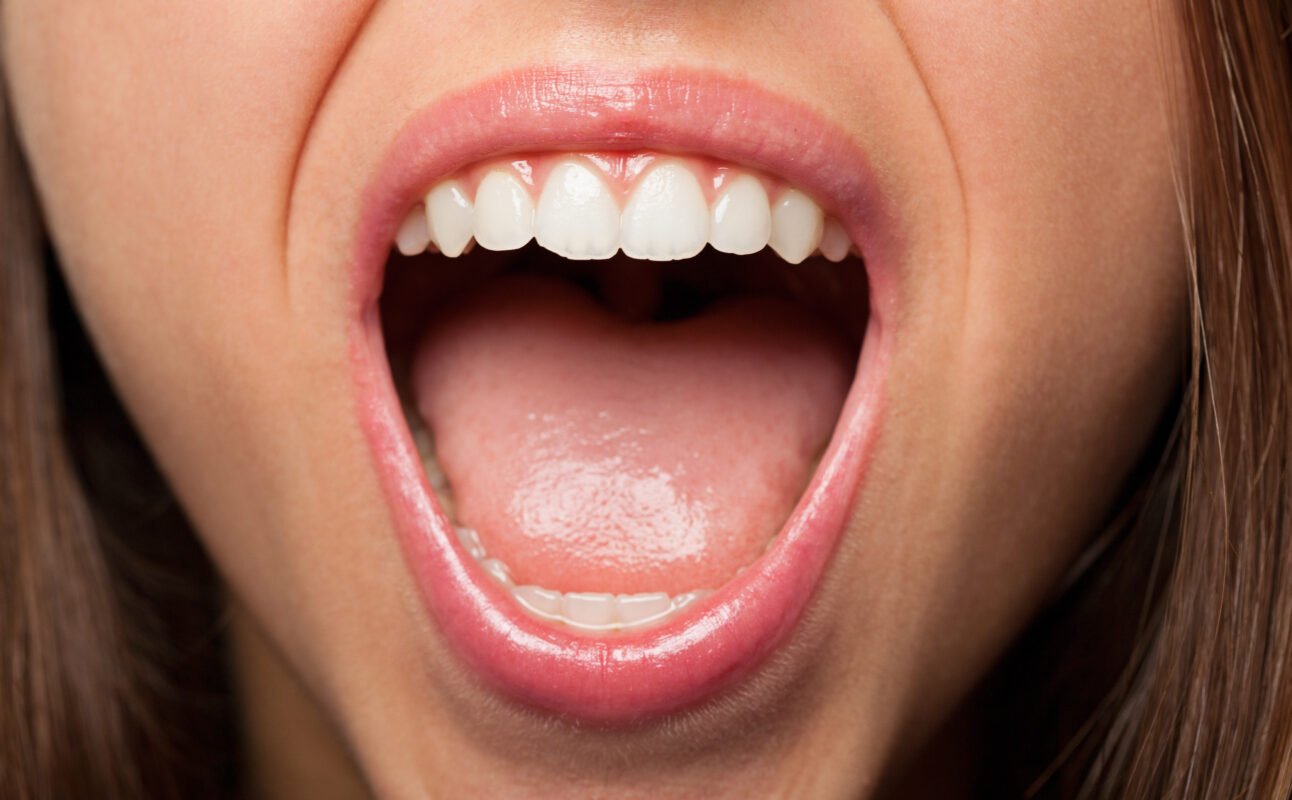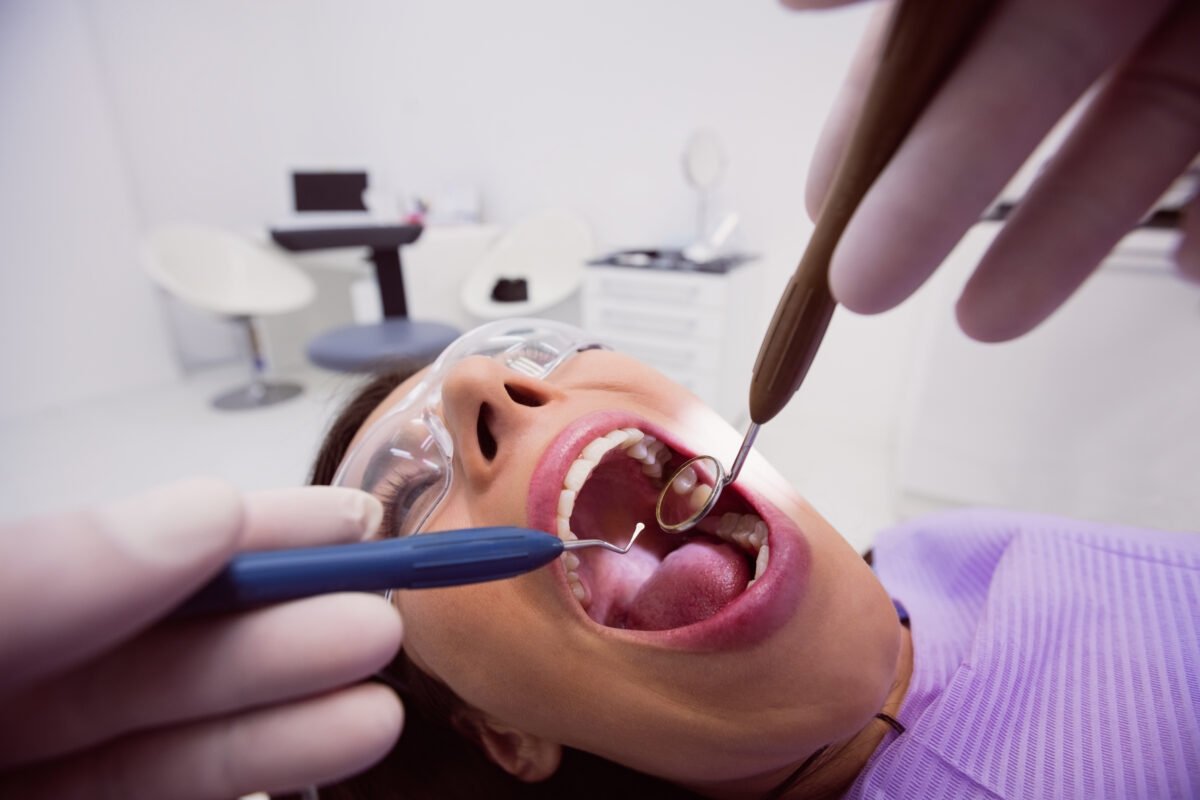Mouth ulcers, or canker sores, are small lesions that form in the mouth. There are no specific causes of mouth ulcers, however, certain allergies, injuries, or sensitivities may induce them. In this article, we will discuss the 5 common causes of painful mouth ulcers.
What are Mouth Ulcers?
An oral ulcer is the loss or erosion of an area of the fragile tissue that surrounds the inner part of the mouth (mucous membrane).
Many factors contribute to the development of mouth ulcers. Injury is the most prevalent cause (for example, accidentally biting the inside of your cheek). Other reasons include aphthous ulcers, some drugs, skin rashes in the mouth, viral, bacterial, and fungal infections, chemical compounds, and certain medical problems.
In the majority of cases, mouth ulcers are harmless and heal on their own within 10-15 days without the need for medical treatment.
Symptoms of Mouth Ulcers
The symptoms of a mouth ulcer vary based on the cause, however, they can include:
- There are one or more painful sores on the mucous membrane that lines the mouth.
- A swollen and red mucous membrane surrounds the lesions.
- Tenderness causes problems with biting and brushing teeth.
- Salty, spicy, or sour food can irritate sores.
- Dentures, orthodontic aligners, or mouth splints can all irritate the sores.
5 Common Causes of Mouth Ulcer
Infections, injuries, and allergic reactions can all lead to mouth ulcers. In most cases, the actual cause of mouth ulcers remains unknown. Below are some of the most common and well-known causes of mouth ulcers.
Smoking
Tobacco use and smoking are clearly harmful to one’s health. Tobacco usage causes mouth ulcers because of the toxic chemicals and toxins it contains. These compounds also have an effect on the mouth lining, changing the temperature and pH of the mouth, and raising the risk of infections. Furthermore, the chemicals found in tobacco can raise your risk for oral cancer.
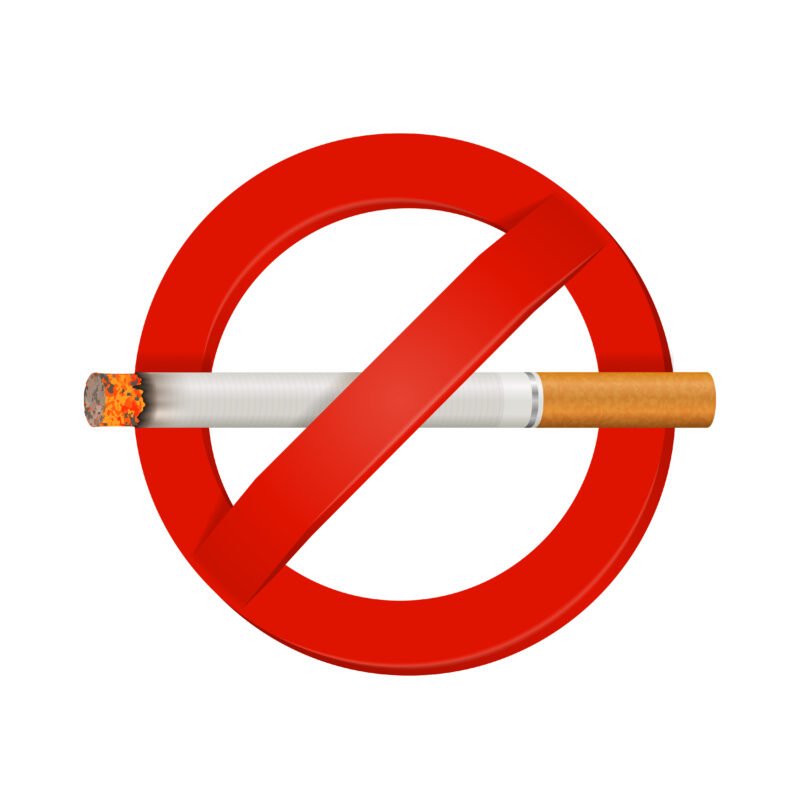
Lack of Oral Hygiene
Lack of oral hygiene is one of the most common and easily avoided causes of mouth ulcers. Mouth ulcers can also be caused by improper or excessive brushing of the teeth. Furthermore, the presence of some compounds in toothpaste or mouthwash, such as sodium lauryl sulfate, might cause an allergic reaction and raise the risk of recurring mouth ulcers.

Infections
Ulcers in the mouth can be caused by a weaker immune system or hormonal changes in the body after stress or anxiety. Oral ulcers, whether caused by bacterial, viral, or fungal infections or other systemic disorders, are a severe health concern. Mouth sores are commonly caused by the following medical conditions:
- Gonorrhea
- HIV infection
- Herpes
- Chickenpox
- Crohn’s disease
- Inflammatory bowel disease
Oral injuries or implantations
Any injury to the oral cavity, such as teeth, gums, lips, or cheeks, might increase the chance of developing mouth ulcers. This includes habits such as cheek or lip biting, as well as tooth decay. Also, using dentures or braces that are not properly fitted might lead to mouth ulcers. Furthermore, if you are allergic to any substance or component found in dental appliances, you are more likely to get mouth ulcers.
Medications
Medications used to treat specific health issues might occasionally induce mouth ulcers. Antibiotics, painkillers, and iodides are some of them. The use of radiation and cancer-treatment medications (chemotherapy drugs) can also cause mouth ulcers.
Treatment of Mouth Ulcers
The majority of mouth ulcers are harmless and are cured on their own within 10-15 days. Other types of mouth ulcers, such as aphthous or those caused by a viral infection or oral skin rashes, require external treatment.
There are many painful mouth ulcer treatment options, including:
- Do not consume hot, salty, and sour food until the ulcers have healed.
- Drink lots of water.
- Keep your oral cavity hygienic.
- Apply an antibacterial gel to the ulcer.
- Rinse your mouth with warm, mildly salted water, leaving it in for up to 4 minutes. Repeat four times each day.
- Oral sprays for treating mouth ulcers.
There are certain mouth ulcer home remedies which can be used for the treatment of ulcers.
Types of Mouth Ulcers
There are three primary types of oral ulcers. These include the following:
Minor Ulcers
This type of mouth ulcer can vary in size from roughly 2 millimeters (mm) to 8 mm across. These ulcers can take up to two weeks to heal and cause slight pain.
Major ulcers
Major ulcers are larger and more irregular in shape than minor ulcers. They may be increased and reach further into the tissue. They take several weeks to heal and may leave a scar behind.
Herpetiform ulcers (HU)
Herpetiform ulcers are a kind of aphthous ulcers named after herpes-related lesions. Compared to herpes, HU is not communicable. HU ulcers reoccur rapidly, and it may appear that the problem will never improve.
Conclusion
Mouth ulcers usually heal on their own, and the discomfort caused by them goes away within a few days. Some treatments, such as ointments and remedies, can help with pain and swelling, but they are not necessary for a person to heal completely. To avoid them, it is necessary for you to know what causes mouth ulcers, so that you can prevent them from appearing in the future by adopting proper prevention measures. In this article, we have discussed the 5 common causes of mouth ulcers.
Some oral sprays, such as the ORAAL SPRAY, may be helpful in the treatment of mouth ulcers. It is very effective in treating oral ulcers.



